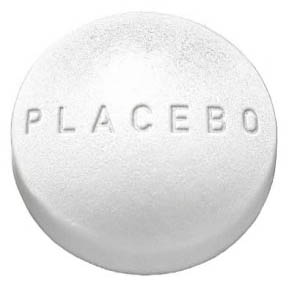Good From Caring and Feeling Cared For
 Placebos are getting a fair amount of press lately. Yes, those “fake” remedies called “inert medications” that seem to be real treatments but aren’t are being talked about quite a bit. Recently, among others, health economist Austin Frakt wrote about them in “The Upshot” (“a New York Times website with analysis and data visualizations about politics, policy and everyday life”).
Placebos are getting a fair amount of press lately. Yes, those “fake” remedies called “inert medications” that seem to be real treatments but aren’t are being talked about quite a bit. Recently, among others, health economist Austin Frakt wrote about them in “The Upshot” (“a New York Times website with analysis and data visualizations about politics, policy and everyday life”).
The good news is that, if you believe the placebo will work, it will! What’s certain is that patients are often randomly prescribed a placebo. Some are told they are receiving them and some aren’t. And despite taking the fake pill, shot, or some other type of “inert” treatment, in many instances the drugs have an effect (even side effects). On the positive effects, Frakt cites the following findings:
“■ Taking two placebo pills (e.g., sugar pills) relieves more pain or provides a greater stimulative effect or is more sedating or heals stomach ulcers more quickly (depending on the study) than taking just one.
“■ Placebo pills with a brand name printed on them are more effective at pain reduction than the same pills without the brand name.
“■ Patients who faithfully take placebo medication for cholesterol reduction survive longer than those who skip doses.
“■ Though sham acupuncture reduces migraines as much as real acupuncture, both reduce migraines far more than no treatment at all.
“■ Measurements of increased endorphins — our bodies’ natural pain relievers — have been associated with placebos’ ability to reduce pain.”
How can this be explained? The theory is that the placebo effect is due to a person’s expectations. Frakt states: “The lesson of placebos is simple: The mind-body connection is strong. A lot of good can come from caring and feeling cared for. Sometimes we need, and can find, additional help from surgery, medication and other therapies. But for a wide range of common problems — from earaches to knee pain to headaches — sometimes we don’t.”
So, if you are suffering from depression, pain, sleep disorders, irritable bowel syndrome or menopause, try the placebo, because especially for these conditions chances are that even if you know you’re taking one, it’ll produce results.

